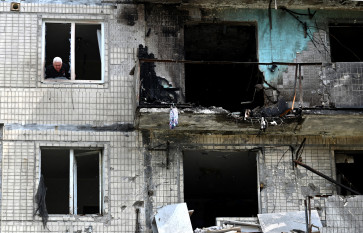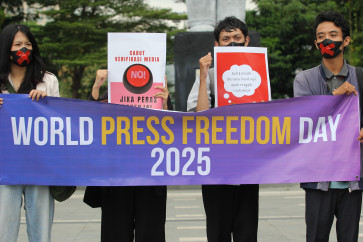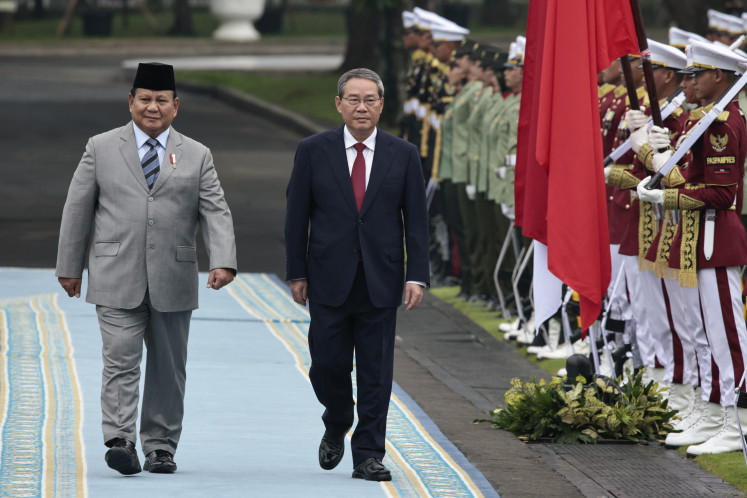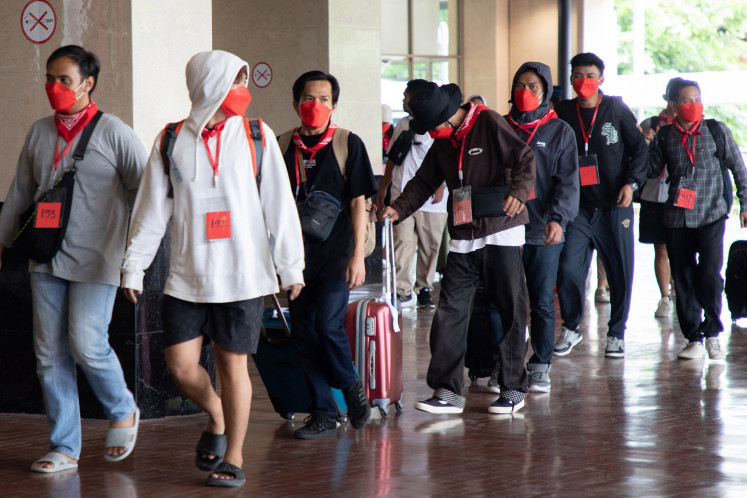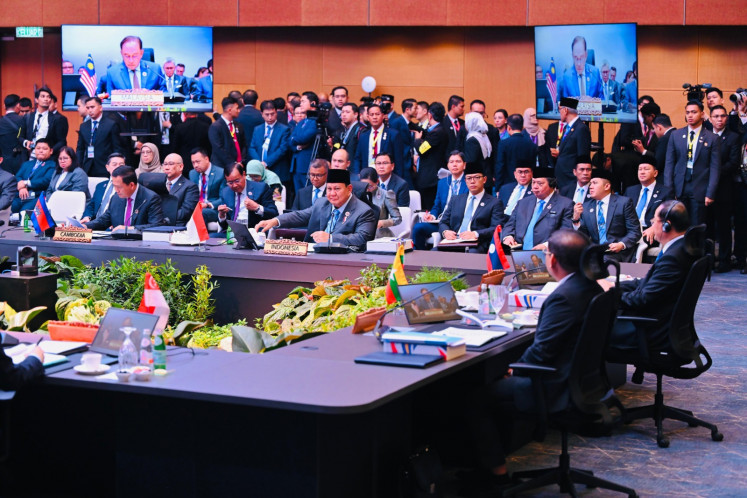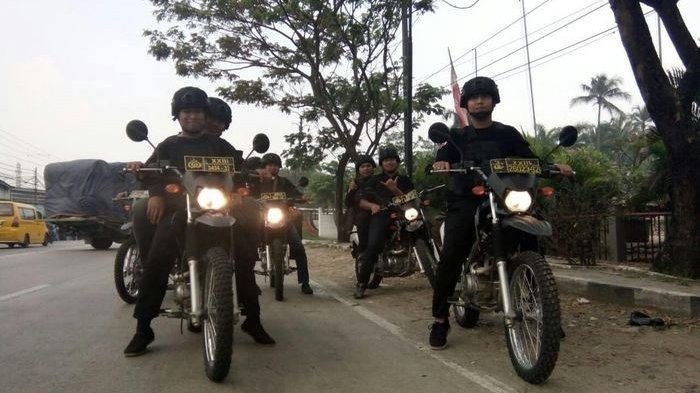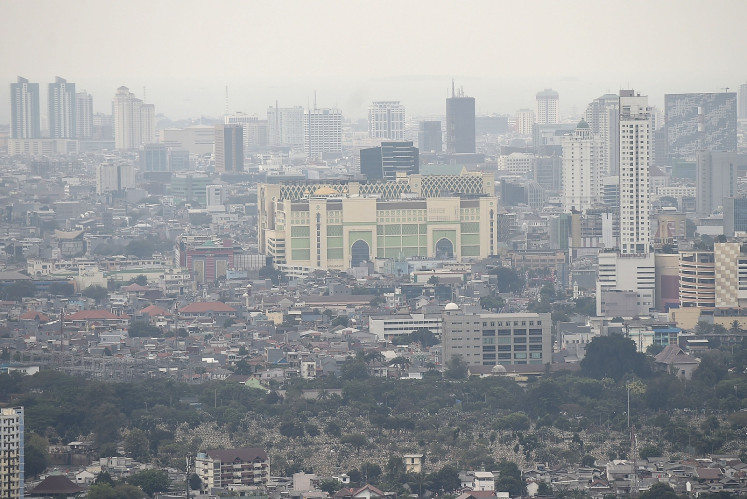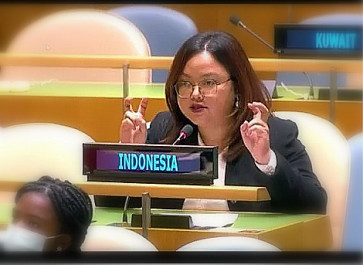Junior diplomats defend Indonesia’s sovereignty
The goal of Vanuatu’s statement is not the fulfillment of human rights in Papua, but to create false justification for an act of separatism.
Change text size
Gift Premium Articles
to Anyone
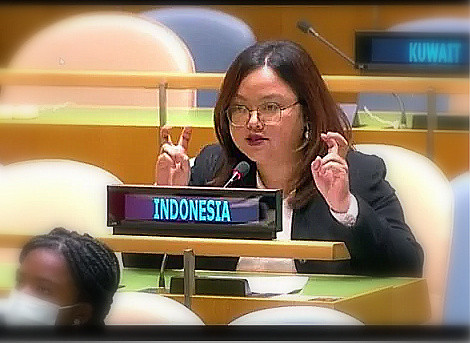 Indonesian diplomat Sindy Nur Fitri responds to a statement by Vanuatu Prime Minister Bob Loughman on alleged human rights violations in Papua, during the United Nations General Assembly in New York on Sept. 26, 2021. (Courtesy of/Indonesian Foreign Ministry YouTube channel)
Indonesian diplomat Sindy Nur Fitri responds to a statement by Vanuatu Prime Minister Bob Loughman on alleged human rights violations in Papua, during the United Nations General Assembly in New York on Sept. 26, 2021. (Courtesy of/Indonesian Foreign Ministry YouTube channel)
T
his year at the United Nations General Assembly (UNGA), Vanuatu yet again raised the unfounded call for Papua self-determination. Indonesia urged one of its diplomats to respond, who stated: “Vanuatu has repeatedly tried to question the unquestionable status of Papua as an integral part of Indonesia.” This move was criticized by The Jakarta Post in its Sept. 30, 2021 editorial, “Papua needs more than junior diplomacy”.
At the outset, it is paramount to correctly comprehend the whole picture of Vanuatu’s statement regarding Papua throughout the years.
In 2000, Vanuatu delivered a statement at the UNGA that questioned the legitimacy of the Act of Free Choice (Pepera) and the validity of UNGA Resolution 2504. This “question” was later reiterated with minor changes in 2004, 2008 and 2013 session, after which they completely abandoned this approach. From 2016 until this year, Vanuatu shifted its reasoning toward a fallacious mix of issues regarding human rights violations and separatism, as if the former constituted a right to invoke the latter.
Vanuatu’s decision to completely abandon their Pepera strategy was peculiar. When their main argument for separatism was proven false, then naturally, their call for separatism should have stopped. Instead, they fabricated other arguments to support separatism, indicating that their genuine intention was never to fulfill self-determination, but secession at all costs.
In light of this, the editorial has apparently missed some important points. First, the substance in Indonesia’s right of reply is not in itself a denial. It is intended to address the fact that Vanuatu’s crusade for human rights is a masked attempt to advocate for separatism, which international law prohibits. It is also important to note the fact that this move is akin to a country demanding the secession of Sanma province from Vanuatu based on the many cases of human rights violations there, including police brutality and violence against women.
This approach is not only misleading and violates the principle of sovereignty and territorial integrity; it is fuel for conflict. Take the infamous trend in the European Union as an example. In 2019 alone, according to the EU Terrorism Situation and Trend Report 2020, out of 119 terrorist attacks in EU countries, 57 were carried out by ethno-nationalist and separatist groups, 26 by left-wing groups, 21 by jihadist groups, and sic by right-wing groups.
It is therefore natural that Indonesia reacted to Vanuatu’s statement the way it did. The goal of Vanuatu’s statement is not to fulfill the human rights of the Papuan people, but to create false justification for an act of separatism.


